Founding Fellows: Ten Years of Academic Excellence
All lectures will take place in the Smith Auditorium. The schedule is subject to change.
Friday, November 1, 2024
| 2:00 pm | Welcome and Opening Remarks |
| 2:15 pm | NEW DISCOVERIES IN WASHINGTON'S MEMORY, MODERATED BY DR. JILL ROTHSCHILD This panel will feature new research and stimulate questions on Washington's symbolic and memorial power from the Revolution through the early 1850s. The panel will interrogate ways in which historic preservation literature, and material continually reinvented Washington's significance. It will also highlight the forthcoming edited volume The Antebellum Afterlives of George Washington, featuring essays by each panelist as well as other fellowships alumni. The book is currently under review by the University of Virginia Press. Lydia Mattice Brandt Melissa DeVelvis Derek O'Leary John C. Winters |
| 3:45 pm | Break |
| 4:00 pm | HISTORIC PRESERVATION AND THE MOUNT VERNON LADIES' ASSOCIATION, MODERATED BY DR. SUSAN P. SCHOELWER Ann Pamela Cunningham founded the Mount Vernon Ladies’ Association (MVLA) in 1853 for the sole purpose of purchasing George Washington’s iconic home and final resting place for the good of the American people. In so doing, she also ignited the nation’s historic preservation movement. This panel will examine the genesis of the MVLA, the rescue of the historic estate, and the site’s significance as a place of public and sacred pilgrimage. Jamie L. Brummit: Weeping at Washington's Tomb Ann Bay Goddin: Ladies' Man: Edward Everett and the Mount Vernon Ladies Jon E. Taylor: The Mount Vernon Ladies' Association: Expanding its Network, 1876-1892 |
| 5:30 pm | RECEPTION, NEW ROOM TOURS, AND VIRTUAL TOUR EXPERIENCE Reception will be held in Ford Orientation Center |
| 6:30 pm | Dinner, Ford Orientation Center |
Saturday, November 2, 2024
| 7:30 am | BREAKFAST Breakfast will be held in Vaughan Lobby |
| 8:30 am | Welcome and Introductions |
| 8:45 am | LIFE AT MOUNT VERNON, MODERATED BY JEREMY RAY In the 18th century, Mount Vernon was a bustling self-sufficient community which supported a large number of residents, including the extended Washington family, and hundreds of workers, whether enslaved, indentured, or paid. This panel will examine a variety of topics related to the daily operations of the estate, including food production, preparation and consumption, midwifery, and the evolution of the buildings and structures which supported these daily operations. Jane Levi: "Property of General Washington": Food, Structure, and the Household Economy at Mount Vernon Sara Collini: Midwives to a Nation: Kate at George Washington's Mount Vernon and Rachael at Thomas Jefferson's Monticello Aimée L. Keithan: The Impact of Mount Vernon's Architecture on Enslaved Servants |
| 10:15 am | Break |
| 10:30 am | MATERIAL CULTURE FROM WASHINGTON'S WORLD, MODERATED BY ADAM T. ERBY Original Washington-owned objects have tremendous power to teach us about the owners, makers, as well as the larger 18th-century world. Over the years, the Mount Vernon Ladies' Association has assembled a vast collection of fine and decorative arts, as well as objects used in everyday life. This panel will explore how historic artifacts like shoes, textile fragments, and dentures help us to better understand George Washington's world. Annette Atkins: Walking Through Mount Vernon: An Exploration through Shoes Marina Nye: A Microhistory of Textile Fragments owned by Martha Washington Lucy Smith: Containing Multitudes: A Biography George Washington's Dentures |
| 12 noon | Lunch at the Mount Vernon Inn |
| 1:30 pm | EDUCATING THE PUBLIC, MODERATED BY K. ALLISON WICKENS Mount Vernon is dedicated to teaching the widest public audience about the life, leadership, and legacies of George Washington. Through visitor engagement and our immense educational resources, we encourage exploration into Washington's world, whether it be here on the estate, in the classroom, or in homes around the world. This panel will explore how the life of the Father of Our Country was taught in the past, how closely related sites approach the topic, as well as new and exciting ways of teaching about George Washington in today's world. Steven C. Bullock: "I have greatly offended the Mount Vernon Family": The Surprising Relationship between Parson Weems and Judge Washington Kate Brown: Teaching George Washington Sam Edwards: A Tale of Two Homes: Sulgrave Manor, Mount Vernon, and the Memory of George Washington in US-UK Relations |
| 3:00 pm | Refreshment Break |
| 3:15 pm | KEYNOTE Ed Larson: George Washington: A Case Study in Republican Leadership through Retirement George Washington voluntarily retired as Commander in Chief of the Continental Army in 1783 and then again from the United States presidency in 1797. In doing so, he greatly strengthened the American experiment by demonstrating values of civilian rule, rotation in office, rule of law, and not having leaders above the law. Leaders need to know when to step away in order to best advance the interests of their followers and the institutions they have led. The temptations to remain in power are enormous. In resisting those temptations Washington greatly enhanced his stature as one of the greatest of all leaders. In both instances, he retired and made his Mount Vernon estate the symbol of his retirement. Preservation of the estate by the Mount Vernon Ladies' Association then reinforced national unity and the core values of republican government that Washington had come to personify. |
| 4:30 pm | Symposium Concludes |
Symposium Presenters
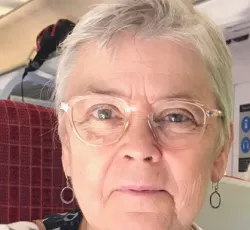
Annette Atkins, Class of 2020-2021
Annette Atkins, Professor Emerita of History, Saint John’s University/College of Saint Benedict, studies history with double vision looking for the complex stories that help us understand better both the past and the present. Her most recent publication is Creating Minnesota: A History from the Inside Out.
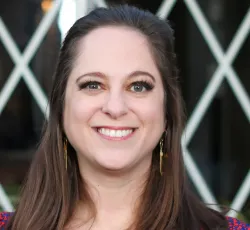
Lydia Mattice Brandt, Classes of 2013-2014 and 2019-2020
Lydia Mattice Brandt is professor of art and architectural history at the University of South Carolina. Dr. Brandt has authored The South Carolina State House Grounds: A Guidebook (UofSC Press, 2021), First in the Homes of His Countrymen: George Washington’s Mount Vernon in the American Imagination (2016), and articles in Winterthur Portfolio, Arris, Antiques & Fine Art, The Public Historian, The Journal of the Society of Architectural Historians, and numerous book chapters. Her current research explores the southern plantation house in popular visual culture.
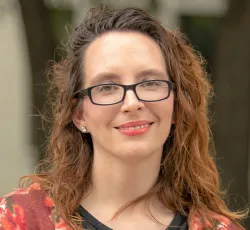
Kate Brown, Class of 2014-2015
Dr. Kate Elizabeth Brown is an associate professor of history and legal studies at Western Kentucky University, specializing in American legal and constitutional history, the early republic, and early modern English legal history. She is the lead scholar of “George Washington and the Economy of the Nation” week at Mount Vernon’s George Washington Teacher Institute. Her first book, Alexander Hamilton and the Development of American Law was published in 2017. She is currently co-editing a volume called Teaching George Washington.
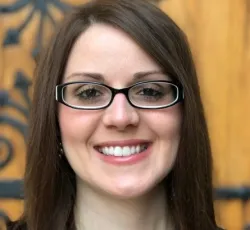
Jamie L. Brummitt, Class of 2016-2017
Jamie L. Brummitt is an Associate Professor of American Religions at the University of North Carolina Wilmington. She is the author of Protestant Relics in Early America (forthcoming with Oxford University Press) and numerous articles on the history of American Protestantism. Brummitt earned her PhD in American Religion from Duke University.
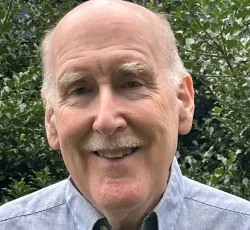
Steven C. Bullock, Class of 2015-2016
Steven C. Bullock is Professor of History at Worcester Polytechnic Institute, where he won the Trustee’s Award for Outstanding Research and Creative Scholarship. His books include Tea Sets and Tyranny: The Politics of Politeness in Early America (2017) and Revolutionary Brotherhood: Freemasonry and the Transformation of the American Social Order, 1730-1840 (1996). He has appeared in documentaries aired on PBS, the History Channel, and elsewhere, and as a commentor on ABC, CNN, and NPR.
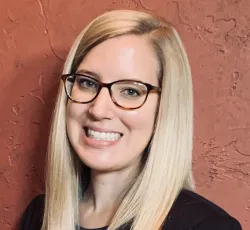
Sara Collini, Class of 2018-2019
Sara Collini is an Assistant Professor of History at The University of Texas at Arlington. She earned her Ph.D. from George Mason University in 2020 and studies early America, slavery, women’s history, the history of medicine, digital history, and public history. Her manuscript project, Birthing A Nation: Enslaved Women and Midwifery in Early America, explores the lives and work of enslaved midwives during the American Revolution and Early Republic.
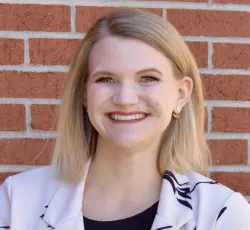
Melissa DeVelvis, Class of 2021-2022
Melissa DeVelvis is an Assistant Professor of History at Augusta University in Augusta, Georgia. Her interests are the Civil War and Reconstruction, women and gender studies, and public history. Her book, Gendering Secession: White Women and and Politics in South Carolina, 1860-1861 will be published with Cambridge University Press in 2025.

Sam Edwards, Class of 2021-2022
Sam Edwards is a Reader (Assoc. Prof) in Modern Political History at Loughborough University, UK. He is a historian of memory, diplomacy, and of transatlantic relations, and has published widely in these fields, including a monograph, Allies in Memory: World War II and the Politics of Transatlantic Commemoration, which was shortlisted for the Royal Historical Society’s Gladstone Prize. A Fulbright Scholar (Pitt. 2010) and a Fellow of the Royal Historical Society, Sam is a Trustee of Sulgrave Manor (ancestral home of George Washington), a Governor of The American Library (Norwich, UK), a Trustee of The D-Day Story (Portsmouth, UK), and Vice-Chair of the Transatlantic Studies Association.
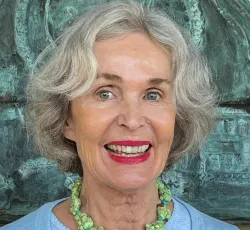
Ann Bay Goddin, Class of 2019-2020
Ann Bay Goddin worked at the Smithsonian Institution for twenty-seven years as both a writer and administrator, including as Executive Director of what was then the Institution’s Center for Education and Museum Studies. In 2000, she became Mount Vernon’s first Vice-President for Education, a position she held until her retirement at the end of 2010. She is writing a biography of Ann Pamela Cunningham, the Founder and first Regent of the Mount Vernon Ladies’ Association.
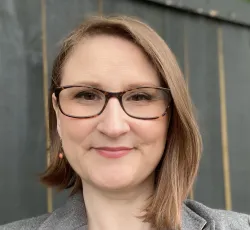
Aimée L. Keithan, Class of 2016-2017
Aimée Keithan is a buildings archaeologist with international experience in the heritage and museum sectors. She holds a Ph.D. in the Conservation of Historic Buildings from the University of York, England. Her research focuses on revealing the lived experiences of marginalized people by examining the spaces they inhabited. She is the Executive Director of Boothbay Region Historical Society, in Boothbay Harbor, Maine.

Ed Larson, Classes of 2013-2014, 2021-2022, 2024-2025
Ed Larson is University Professor of History and Law at Pepperdine University and previously taught for 20 years at the University of Georgia, where he chaired the history department. Recipient of a Pulitzer Prize in History, Larson is the author of sixteen books, including the bestselling The Return of George Washington, 1783-1789 and Franklin & Washington: The Founding Partnership. He has given academic lectures on every continent and served as a visiting professor at Yale Law School, Stanford Law School, University of Melbourne, Leiden University, and the University of Richmond.
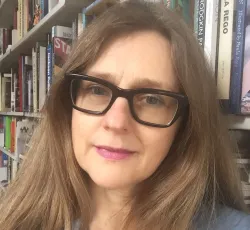
Jane Levi, Class of 2017-2018
Jane Levi, Ph.D., is a cultural historian specializing in food and utopianism, and a visiting research fellow at King's College London. Curator of the Founding Museum London's Feeding the 400 exhibition (2016-17) she also co-founded Edible Utopia, an artists' and growers' co-operative based in the secret spaces of Somerset House (2015-2021). She is co-author of Food, Politics & Society (University of California Press, 2018) and writes for scholarly and public audiences on food history and culture.

Marina Nye, Class of 2022-2023
Marina Nye is a Ph.D. candidate in the UCLA History Department. Her dissertation is a biography of textile fragments once owned by Martha Washington. By exploring the textiles’ multiple transformations (a gown, chair upholstery, and a needle case), her research uncovers the lives of dozens of women who touched the fabric. Nye has written for Historic New England Quarterly and presented her work at AHA, Berks, WAWH, among other conferences.
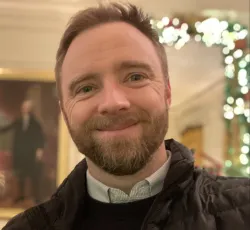
Derek O'Leary, Class of 2019-2020
Derek O'Leary received his Ph.D. in US History at UC Berkeley in 2020 and has taught since at Bard High School Early College, D.C. and the University of South Carolina. He transitioned to the federal government in 2022 and just completed the Presidential Management Fellowship program. His book, Archival Communities: Constructing the Past in the Early U.S., will be published by UVA Press in 2025.
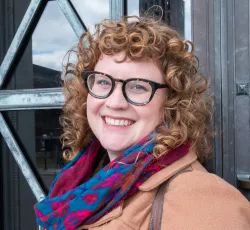
Lucy Smith, Class of 2023-2024
Lucy Smith is a Ph.D. candidate at the University of Michigan in the joint History and Women's and Gender History program. Her dissertation examines the cultural history of teeth in the early American Republic as individuals developed a series of meanings to interpret and classify people based on their teeth. Before graduate school, Smith worked in museum education at both private and public cultural institutions, most recently as the Educational Specialist at George Washington's Mount Vernon.
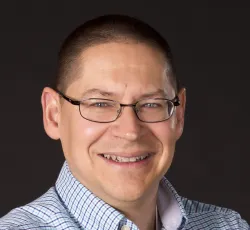
Jon E. Taylor, Class of 2013-2014
Dr. Jon E. Taylor is the author of four books on the life, political career, and legacy of Harry Truman, including A President, A Church, and Trails West: Competing Histories in Independence, Missouri, which examined the preservation of the places associated with Harry Truman in Independence. Currently he serves as Coordinator of the MA in History program at the University of Central Missouri in Warrensburg, where he also teaches courses in American and public history. He serves as project director for Historic Missouri, a free website and mobile app, that provides users easy access to information about the important places, people, and stories unique to Missouri.
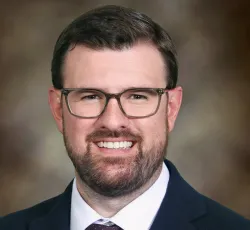
John C. Winters, Class of 2019-2020
John C. Winters, Ph.D., is a historian and museologist who studies the intersections of Indigenous and museum history. He is author of "The Amazing Iroquois" and the Empire State (Oxford University Press, 2023), has published in scholarly journals and public forums, and is presently reinterpreting historic Fort Rosalie in Natchez, MS, with a grant from the National Park Service.
Moderators
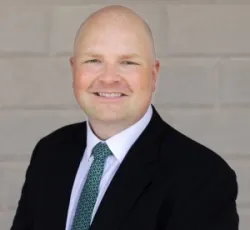
Adam T. Erby
Adam T. Erby is the Martha Washington Chief Curator and Director of the Fine and Decorative Arts Collection at George Washington's Mount Vernon, where he oversees the institution's curatorial collections, historic interiors, special exhibitions, and conservation program. He recently curated the exhibition Mount Vernon: The Story of an American Icon and oversaw the restoration of several mount Vernon rooms. He is a graduate of the University of Virginia and the Winterthur Program in Early American Culture.
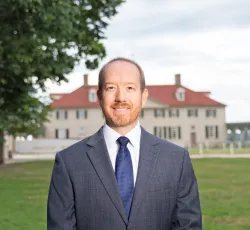
Jeremy Ray
Jeremy Ray is the Sr. Director of Interpretation at George Washington's Mount Vernon, where he has worked since 2007. He is proud to oversee the implementation of Mount Vernon's educational goals through the Character Interpretation, Historic Trades Interpretation, and History Interpretation departments. During his tenure at Mount Vernon, Jeremy has worked in several capacities, including Manager of History Interpretation, Interpretive Supervisor, and as a History Interpreter leading Mansion tours. Through that experience, Jeremy has successfully developed and implemented many improvements to the interpretive experience. Jeremy holds a B.A. in history from Virginia Tech.
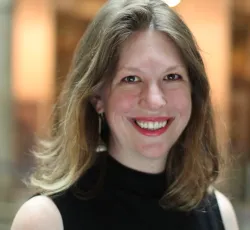
Jill Rothschild
Dr. Jill Vaum Rothschild is an Associate Curator in the Fine and Decorative Arts Department at Mount Vernon. She specializes in the art and material culture of the eighteenth and nineteenth century United States, and she holds an M.A. and Ph.D. in Art History from the University of Pennsylvania and a B.A. in Art History and American Studies (minor) from Vanderbilt University. She was a Research Fellow at the George Washington Presidential Library in 2021.
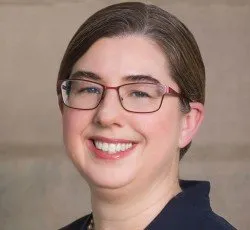
K. Allison Wickens
Allison Wickens leads the Education and Guest Services division at Mount Vernon and oversees the history and civics learning goals for the institution's onsite, offsite, and digital outreach programs. She writes and speaks about the education and learning of young people at museums, historic sites, and schools and has written on this subject in articles published in the Journal of Museum Education. She received an M.A. in History and a certificate in Museum Studies at the University of Colorado, Boulder and a B.A. in history from Grinnell College.
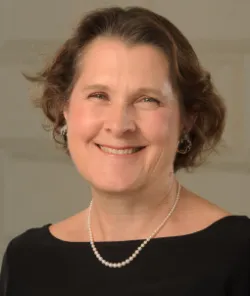
Susan P. Schoelwer
As Mount Vernon's Executive Director of Historic Preservation and Collections and Robert H. Smith Senior Curator, Susan Schoelwer directs the architectural preservation, furnishing, and interpretation of George and Martha Washington's house and surrounding plantation buildings, gardens, and landscapes. She has led the creation of several museum exhibitions, including the current Mount Vernon: The Story of an American Icon; the award-winning Lives Bound Together: Slavery at George Washington's Mount Vernon (2014-2016). She holds a Ph.D. in American Studies from Yale University, an M.A. degree from the Winterthur Program in Early American Culture at the University of Delaware, and a B.A. in history from the University of Notre Dame.
Accommodation
The George Washington Presidential Library partners with the Hampton Inn & Suites Mt. Vernon/Belvoir-Alexandria South Area, the closest hotel to the Mount Vernon estate. Book a stay for nights between October 31-November 2 to take advantage of these exclusive, special rates. Call the hotel directly at (703) 619-7026, and mention the Group Code NSP or click here to book online.
Parking
Guests should park in the Mount Vernon visitor parking lots and enter the auditorium via the Shops at Mount Vernon.